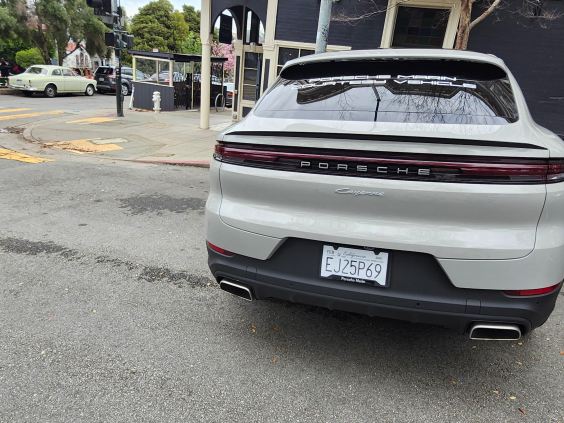Demonstrations against police brutality spilled onto streets and highways in American cities this weekend, with protesters stopping traffic in Baton Rouge, Memphis, St. Paul, Los Angeles, and Oakland.
NPR reports 102 people were arrested in St. Paul and another 120 in Baton Rouge, including prominent Black Lives Matter organizer DeRay Mckesson, who was arrested while walking along Airline Highway, a large, divided surface street. Mckesson was charged with "obstruction of a highway" and released on Sunday, telling the Washington Post that the charges against him have not been dropped, however.
"You, with the loud shoes!" @deray pic.twitter.com/yMsaxbRgnJ — twenty-fourth of jul (@CearaGoodnow) July 11, 2016
"Obstruction of a highway of commerce" is a crime in Louisiana, and the felony version is punishable by imprisonment "with or without hard labor, for not more than 15 years," according to a New Orleans criminal defense firm (hat tip to Lloyd Alter for the info).
Mckesson said that demonstrators were not even obstructing the highway, which is consistent with footage of the protest from around the time of his arrest.
Meanwhile, in St. Paul, officers used the obstruction of I-94 as a pretext to teargas protesters:
Protesters respond to flashbangs rubber bullets & smoke grenades with #PurpleRain. The most MN ish ever.#i94closed pic.twitter.com/o4EAiTuMAv — Nick Espinosa (@CGoHome) July 10, 2016
Protesters also tried to take over highways in Atlanta and Greensboro, North Carolina, according to the Voice of Philadelphia, but did not succeed.
Over 5,000 people are currently marching down the streets of Atlanta. Here's a video from an hour ago. #ATLisReady pic.twitter.com/fHRTekh0V5 — Everything Georgia (@GAFollowers) July 9, 2016
South Carolina Governor Nikki Haley said she supports peaceful protests, according to Philly Voice, but that "I'd ask that we not put our fellow citizens or law enforcement at risk -- which is exactly what attempting to block highways does."
Apparently Haley was referring to the possibility that emergency responders could be delayed, a common justification when public gatherings on roads are broken up. Last year, a Massachusetts lawmaker suggested that protesters who block highways should be charged with attempted murder on these grounds. But the world keeps turning when highways come to a standstill for more common reasons, like traffic collisions.
The eagerness to arrest and aggressively disperse people protesting on highways seems inseparable from public officials' identification with motorist entitlement -- the presumption that drivers' business must never be subordinated, and certainly not for a spontaneous public demonstration exercising First Amendment rights.
That attitude surfaced in ugly form on social media this weekend, with truckers and other motorists expressing the impulse to run over protesters. Even when drivers act on that urge, law enforcement may not hold them accountable, as we saw after a motorist drove into demonstrators at a 2014 Black Lives Matter protest in the Twin Cities.
The First Amendment guarantees "the right of the people peaceably to assemble," but courts have limited the public's right to assemble on streets and highways. Laws may require protesters to obtain a permit for street protests and impose "reasonable" restrictions on where and when these actions can happen. Cities and activist groups often contest what constitutes reasonable restrictions.
Sometimes law enforcement simply tries to rob demonstrators of their constitutional rights. During 2014 Black Lives Matter protests in Ferguson, legal advocates had to intervene to protect protesters' right to demonstrate on the sidewalk. Police had insisted demonstrators keep walking instead of standing in place, using the charge of impeding sidewalk traffic as an excuse to arrest people.
Other times, when the sidewalk feels too constricting, you need a bigger platform and a better stage.





